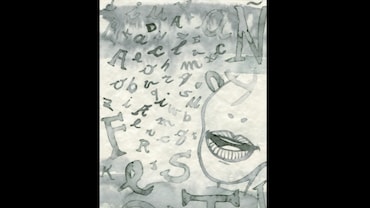Did The Supreme Court Allow The Publication Of Gauri 'Auto' Shankar's Alleged Autobiography?
A magazine fights for its right to publish

IN 1994, career criminal Gauri 'Auto' Shankar was on death row in Tamil Nadu. Both the High Court and Supreme Court had turned down his appeals. Then, in May, the Chennai-based Tamil magazine Nakkeeran announced that they'd be printing Shankar's 'sensational autobiography'-which they claimed he'd written in prison and sent them through his lawyer.
But in June, after part one was published, the magazine received a letter rom the prison authorities. "From the above facts, it is clearly established that the serial in your magazine under the caption 'Shadowed Truth' or 'Auto Shankar's dying declaration' is not really written by Shankar..." the letter read. It also stated that writing in the name of a condemned prisoner was against prison rules and that the power of attorney given by Shankar was unlawful. It threatened legal action if the magazine continued to publish the 'alleged' autobiography.
R. Rajagopal, the editor, printer and publisher of Nakkeeran then filed a petition in the High Court against the State of Tamil Nadu, the Inspector General of Prisons (Madras) and the Superintendent of Prisons (Tamil Nadu), seeking to restrain them from interfering in their continued publication of Shankar's life story. The High Court judge dismissed the writ, but Rajagopal then moved the Supreme Court, seeking relief under Article 32 of the Constitution which seeks "reme-dies for the enforcements of rights."
Would the Supreme Court allow publication of Shankar's 'alleged' autobiography? You be the judge.
The Verdict
In the Supreme Court, Rajagopal's lawyer disputed the contents of the prison letter and confirmed that the publication had been halted because of its 'threatening tone.' Counsel claimed that the authorities feared the book would expose their 'links' to Shankar. The lawyer also asserted the freedom of press guaranteed by the Constitution under Article 19 (1) which states "All citizens shall have the right (a) to freedom of speech and expression..."
The state's lawyer reminded the judge that the High Court had dismissed Rajagopal's plea, saying that the question of whether Shankar had even written his autobiography and authorized its publication was in dispute. Counsel pointed out that the magazine could not produce any letters by Shankar saying so and further submitted that the allegations by Rajagopal that a number of IAS, IPS and other officers patronized Shankar was baseless. "It is only in the context of such a situation coupled with the fact that the petitioner might under the guise of such an autobio-graphy tarnish the image of the persons holding responsible positions in public institution that the communication dated 15-6-1994 [the prison letter] was sent to him," the state's lawyer added.
Supreme Court Justice B.P. Jeevan Reddy noted that Shankar, his wife and lawyer were not parties to this petition. "We do not have their version... whether Shankar has indeed written his autobiography and/or...requested or authorized the petitioners to publish the same..." the judge noted, declaring he would proceed on the assumption that Shankar hadn't written the autobiography nor authorized its publication. "We must, however, make it clear that ours is only an assumption for the purpose of this writ petition and not a finding of fact," he clarified.
On 7 October 1994 Justice Reddy ruled in favour of Rajagopal, saying that the State or its officials did not have the authority to stop the publication of material it deemed defamatory of the State or its officials. "No law empowering them to do so is brought to our notice," said Justice Reddy. "The remedy of public officials... will arise only after the publication…"
However, Justice Reddy also issued a word of caution, emphasizing that the magazine had the right to publish what they alleged to be Shankar's life story without his consent only insofar as it appeared in the public record. "But if they go beyond that and publish his life story, they may be invading his right to privacy and will be liable for the consequences in accordance with the law," he wrote.
Do you agree with the verdict? Do a review of this case and write to the editorial address or e-mail: editor.india@rd.com






